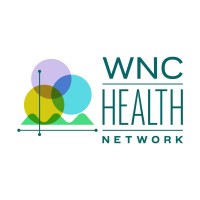
WNC Health Network
WNC Health Network exists to support people and organizations to improve community health and well-being across western North Carolina. We envision a region in which every community has the capacity, resources, and trusted relationships to effectively address complex, deeply-entrenched, and emerging health issues at a local level. Over time, this turns the curve on regional population health indicators– measurably demonstrating that western North Carolina is the healthiest place in the nation. We leverage our unique regional role & skills to contribute to efforts addressing key health issues & health inequities in the region with support in the following areas: We build local & regional capacity to plan, facilitate, implement, and evaluate community health improvement efforts at the population & performance levels We collect, curate & communicate high-quality, regional, population-level health data We support & enhance health communications






